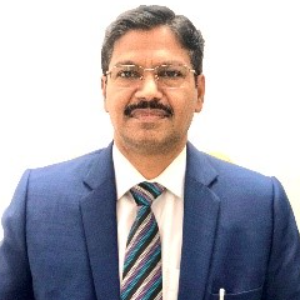Title : Nano-technology based formulations: A revolution in drug targeting
Abstract:
Micro to Nanotechnology based formulations found to play a promising option to develop precise drug targeting. Controlled drug delivery dominated over the conventional drug delivery systems in the sense to alter the pharmacokinetic and pharmaco-dynamic parameters of the active therapeutic moieties by adopting novel drug delivery technology or by modifying the molecular structure and/or physiological parameters of the drug through a selected route of administration.
For example: Ionotropic gelation technique was used to entrap aceclofenac into algino-pectinate bioadhesive microspheres as a potential drug carrier for the oral delivery of this anti-inflammatory drug. Microspheres were investigated in-vitro for possible sustained drug release and their use in-vivo as a gastroprotective system for aceclofenac. Polymer concentration and polymer/drug ratio were analyzed for their influence on microsphere properties. The microspheres exhibited good bioadhesive property and showed high drug entrapment efficiency. Drug release profiles exhibited faster release of aceclofenac from alginate microspheres, whereas algino-pectinate microspheres showed prolonged release.
Within decade it has been observed that the development of drug delivery platform is shifting towards nanotechnology-based formulations for drug targeting. Now nanomedicine concept dominates over micro-encapsulation techniques in designing targeted and controlled release drug delivery systems. Nanomedicine is the application of nanotechnology to health care. It has potential impact on the easy and reliable diagnosis, monitoring and treatment of disease. There are lot of research potentials in the field of nanoparticulate systems to be utilized in the drug delivery and drug targeting. Particulate systems like nanoparticles have been used as a physical approach to alter and improve the pharmacokinetic and pharmaco-dynamic properties of various types of drug molecules. They have been used in-vivo to protect the drug entity in the systemic circulation, restrict access of the drug to the chosen sites and to deliver the drug at a controlled and sustained rate to the site of action.
Nanoparticles may be because of its size and functionalization characteristics able to penetrate and facilitate the drug delivery through the barrier. There are number of mechanisms and strategies found to be involved in this process, which are based on the type of nanomaterials used and its combination with therapeutic agents, such materials include liposomes, polymeric nanoparticles and non-viral vectors of nano-sizes for CNS gene therapy, etc.
Different drug delivery systems such as liposomes, microspheres, nanoparticles, nono-gels and nono-biocapsules have been used to improve the bioavailability of the drug in the brain, but microchips and biodegradable polymeric nanoparticulate careers are found to be more effective therapeutically in treating brain tumor. The physiological approaches also utilized to improve the transcytosis capacity of specific receptors expressed across the BBB. It is found that the low-density lipoproteins related protein (LPR) with engineered peptide compound (EpiC) formed the platform incorporating the Angiopep peptide as new effective therapeutics. The lipid-based formulations comprise nano-emulsions, solid-lipid nanoparticles (SLNs), nano-structured lipid carriers (NLCs), liposomes, and niosomal systems, etc. have found more promising antitubercular activity as its intended for targeted drug delivery especially to the infected part. Further mannosylation of liposomes offers tremendous results in TB chemotherapy as it directly binds to mannose receptors available on the surface of alveolar macrophages resulting mycobacterium destruction. SLNs and manosylated SLNs are the advanced form of the lipid formulations, which found to enhance the drug uptake at the infected organ and show significant in vivo anti-tubercular activity with reduced toxicity.
Recently it has been found that the use of nanotechnology in the field of pharmaceutical biotechnology helps in improving the drug delivery strategy including the kinetics and therapeutic index to solve the delivery problems of some biotech drugs including the recombinant proteins and oligonucleotides. Use of nanotechnological based formulations and nanomaterials are increasing day-by-day in wide range covering a broad typology of applications, from design and development of targeted drug delivery systems, manufacturing of pesticides, domestic appliances, textiles, to bioremediation engineering. There are therefore concerns about the environmental risks or bioaccumulation related issues that may arise particularly resulting from the application of drug loaded nano-carriers or effect of pesticides that reach the natural ecosystems.



